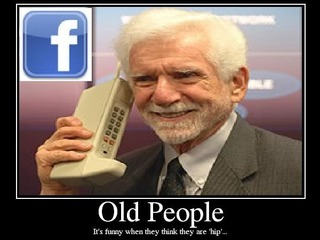
The Web at 25: What's in store for the next decade?
Experts agree on where the Web is headed, but many disagree on what it means for society

Tomorrow, the Web officially turns 25. To celebrate, Pew researchers interviewed 1,500 experts to get their predictions on what’s in store for the Web over the next decade. And the votes are in: it’s good and bad. The good news: there will be greater global connectivity, more positive relations, and greater insight into our own lives. The bad news: still no jetpacks.
While most experts agree on where tech is headed, many disagree on the large-scale social and cultural implications.
Most of the experts identified eight positive future scenarios for the Web. For starters, they all agree that the Web will become so pervasive and ambient in daily life that it will be like electricity—just a given. Additionally, they agree that augmented reality and wearable devices will give people greater insight into their own daily life and personal health.
Where education is concerned, many experts agree that the Web will facilitate an education revolution, resulting in fewer dollars spent on buildings and teachers and more educational opportunity for kids and adults alike.
As for politics and society as a whole, many experts have rather lofty expectations. Some forecast a rapid spread of the “Ubernet,” which will ultimately diminish the meaning of physical borders and create new “nations” based on shared interests. Many also believe that wider connectivity will foster more positive relationships among society, which seems…dubious.
But there are also some downsides to a widespread, more accessible Web. Many experts believe that the Internet could ultimately widen class divisions, resulting in greater social tensions and possibly violence. This seems pretty spot-on…
They also point out the fact that the Web isn’t changing human nature altogether. There are still bad people out there and they’re evolving with the Web, finding new ways to abuse others and cover their tracks. Those people are only going to get more Web-savvy over the next decade. Which is way too depressing for a Tuesday.
And—uh-oh, more bad news: people and organizations will still struggle to keep up with the rapid pace of change in tech, and many will likely make privacy trade-offs until privacy is something only the “upscale” will enjoy.
“It is striking how much consensus there is among these experts on what will change, and equally striking how varied their answers are when they are asked how those changes will impact and influence users in good and bad ways,” said Elon University Professor Janna Anderson, a primary author of the report, in a statement. “This is the sixth ‘Future of the Internet’ survey we have conducted since 2004, and for the first time most people are seeing and vividly describing as many potential negatives as they are identifying positives. They worry about interpersonal ethics, surveillance, terror and crime and the inevitable backlash as governments and industry try to adjust.”
Image source: oecd.org
Related News


Pew: 52% of cell phone owners are "connected viewers"

Pew: Technology's increasing impact on relationships

